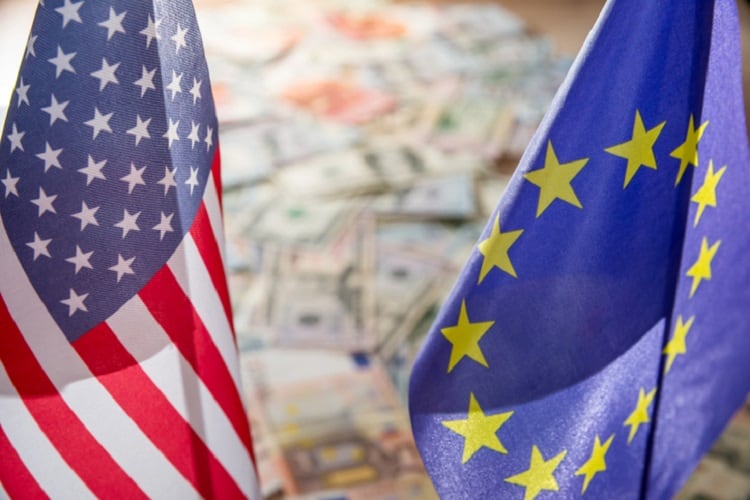The launch of the UK Trade Strategy at the end of June marks a fundamental reset in our approach to international trade, both protecting and boosting British business.
The strategy will make the UK the most connected nation in the world while protecting vital industries from global threats and backing businesses to thrive.
Building on our Free Trade Agreements, the strategy will deliver targeted support through a wider range of tools that deliver concrete benefits for UK businesses.
UK Trade Strategy pledges
This strategy is designed to stimulate economic growth, through delivery of targeted business interventions, in a rapidly changing global landscape. These include:
- Unlocking billions of pounds worth of opportunities for UK exporters through the new Ricardo Fund, which will tackle complex regulatory issues, shape global standards, and remove obstacles for UK businesses selling abroad.
- Expanding UK Export Finance (UKEF)’s capacity by £20 billion to a total of £80 billion.
- Announcement of a new Small Export Builder to give smaller firms better access to export protection insurance and improvements to help overseas buyers finance repeat orders from trusted UK suppliers in a more streamlined way.
Enhanced Strategic Partnership with EU
For food and drink businesses, a key part of the strategy is the Enhanced Strategic Partnership with the EU, agreed at the EU Summit in May. The European Union (EU) represents one of the largest and most dynamic trading blocs in the world, offering a wealth of opportunities for businesses and economies seeking to expand their international reach.
In 2024, the UK’s total trade with the EU was 2% below the level seen in 2018, while the UK’s total trade with the rest of the world rose by 9%. Around 16,400 UK businesses have stopped exporting to the EU, and we are committed to getting businesses exporting again to our biggest trading partner, particularly in food and drink.
As part of the Enhanced Strategic Partnership, we will agree a Sanitary and Phytosanitary (SPS) Agreement, making agrifood trade with our biggest market cheaper and easier, cutting costs and red tape for British producers and retailers. The agreement will make supply chains more resilient, reduce delays at the border and permit entry to the EU for sausages and types of shellfish.
With the principles and framework of a deal agreed, the UK and the EU will move to negotiate the details, and traders must continue to comply with all current requirements until an agreement is finalised and implemented.
Until that time, we have provided you with guidance on how to best navigate EU borders and where you can find further support.
Navigating EU borders in the interim
First, we hear from the Agricultural attaché in Europe, Ged Manning:
In recognising the complexities of exporting food and drink to Europe, the Department for Environment, Food and Rural Affairs (DEFRA) appointed two Agriculture, Food, and Drink attachés to cover all European markets, from Iceland to Turkey. Their primary objective is to facilitate UK businesses in selling their goods into the European market. These attachés join a wider network of 16 attachés, covering 90% of export markets, to ensure long-term opportunities for UK products.
Given the proximity and size of the European market, addressing these market access barriers is the number one priority to boost growth for UK businesses. While it remains important to address issues as they arise, we are working with European governments and businesses to find sustainable solutions that benefit industry in the UK and across Europe. This approach will help deliver strengthened relations with our European partners and grow business opportunities.
This is particularly the case for SMEs at different stages of their exporting journey which have been strongly impacted by things like SPS checks and certification. That is why we are actively identifying sectors with untapped export potential in various European markets to help foster new opportunities for UK businesses. Once the SPS agreement is finalised and implemented this will also remove the main barriers that lock exporters out of European markets due to checks and extra costs.
Acknowledging the variety of products and volumes which are exported to the EU, there are some key points that we encourage businesses to bear in mind when sending agri-food products to Europe.
Understand evolving regulations
Businesses have adapted to new customs procedures and licensing requirements for importing and exporting goods. While EU import controls, such as health certification and physical inspections, are expected, it’s important to remember that requirements can vary depending on the product.
Make sure your goods comply with the latest standards to avoid delays and complications at the border. Regulations do change, so staying informed is essential.
Utilise expert services and leverage government support
Many businesses benefit from using customs brokers, freight forwarders, or fast parcel operators to handle import and export declarations.
Defra and DBT offer various forms of support, including advice and resources for exporters. These resources can help navigate the procedures and compliance requirements.
This is particularly important for exporting sample products, which often face unique challenges. We are actively working to improve processes to help exporters understand the requirements in different countries when sending goods for trade shows.
5 tips for sending samples
We also spoke to Lukas Jirousek, Senior Trade Advisor in the Export Support Service who gave his top tips for businesses when sending samples:
- Keep it clear and compliant: Clearly label all packaging and paperwork as commercial samples. Include proof of commercial intent, like a commercial invoice or brief letter from the exporter.
- Safety first and SPS standards: Your samples should be safe, pest-free and disease free, ensuring the highest quality. Some products may need an export health or phytosanitary certificate until the new agreement comes into place.
- Enjoy customs duty relief: Your samples could be exempt from duties if they are clearly identified as samples, not intended for sale or consumption.
- Special arrangements for research and & diagnostic samples: If your samples are for research, diagnostics, or education, they may qualify for extra exemptions, making the process even smoother.
- Ideal method: Consider using DDP (Delivered Duty Paid) to streamline the process and avoid importers having to manage duties.
Further support
There is a range of further support available to get started and reacquainted with trading in the EU. Businesses can access support at the new ‘one stop shop’ portal for growing and exporting a UK business.
Other support available for UK businesses:
- Get further support on sending samples by contacting the Export Support Service
- HMRC provides a list of customs agents and express operators, along with advice on getting someone to deal with customs for you.
- Trade organisations, such as the Chartered Institute of Exports and the Food and Drink Exporters Association can also support businesses with trading with the EU.
- Businesses can check and raise a trade barrier at the Report A Trade Barrier Service.




